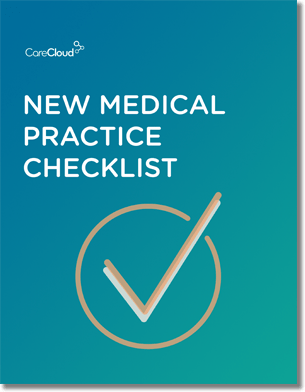The healthcare industry is facing a monumental shift in how it handles information. The paper records, faxes and phones calls are being replaced with electronic health records, emails and instant messages. As the industry transitions to technology-enabled health care, it could learn a lot from how Facebook built its system to evolve, engage and connect its users.
As new regulations influence innovations in health care, the decisions made today will transform how health care is delivered tomorrow. Let’s look at how some of Facebook’s features can be applied to health care to make sure that change is leveraged to enhance the process and improve patient outcomes.
Focus on the User
Facebook focuses on delivering a superior user experience with its software. It’s easy for users to navigate, communicate, update, upload and share. This ease of use is what drives engagement and leads to 50 percent of Facebook members being active on any given day.
Making systems user friendly should be a top priority for healthcare IT providers. Often, functionality is lost in an effort to load an application with features. This can make software clunky and complicated, instead of lightweight and easy to use. Creating healthcare software that is intuitive will make patients and healthcare providers more apt to connect, engage and work together.
Make Better Connections
Facebook’s mission statement clearly explains its goal: “Facebook’s mission is to give people the power to share and make the world more open and connected.”
Facebook also makes it easy for websites to connect and share with the “Like” button, making virtually every piece of content on the Internet sharable through Facebook. An open platform extends functionality and allows for growth of its ecosystem. This not only expands Facebook’s reach, but the reach of all the companies that build for the platform and make their sites Facebook friendly.
Health care needs to enable collaboration like this for better results. Imagine giving patients and providers the ability to share images, results and records instantly online. Members could chat in real time to ask and answer questions, appointments could be set, images could be uploaded, bills could be paid, and prescriptions could be ordered with just the click of a button.
Consider the possibility of when a patient takes his blood pressure, the number is automatically sent to his electronic health record, which is shared with his doctor and a prescription for medicine is then sent to the pharmacy instantly. Systems that connect patients, physicians and pharmacies could streamline the convoluted health care process.
Accessibility is Key
Facebook is a cloud-based application, so users get full functionality of the system without downloading anything – all they need is an Internet connection. How successful would Facebook be if users needed a CD to install it?
Users can also access the system on their mobile devices, which greatly enhances engagement with Facebook. The 250 million active users accessing Facebook through mobile devices are actually twice as active as non-mobile users.
Giving patients and providers access to the system when and where they want it will ensure that they are more engaged. Making healthcare apps available to doctors on their phones, tablets, at home or at the office will increase their ability to work more efficiently, while still allowing them to live their lives outside of the office.
Patients could review results or change appointments from their smartphones, reducing the work for medical staff and getting the patient more involved in their own health care.
Start with Security
Security is one area where Facebook has not been such a shining example. The problems they’ve had with privacy of personal information and security concerns have been well publicized. Perhaps if Facebook had focused more on security from the beginning, it could have avoided some of these issues.
Facebook presents a cautionary tale to health care organizations when it comes to security. The very nature of healthcare data makes it extremely sensitive, so IT providers must build their system from day one on a secure foundation.
Continue to Innovate
The meteoric rise of Facebook has been nothing short of extraordinary, but this company refuses to rest on its laurels. Facebook continues to test, add and refine features to deliver the best user experience possible. It is constantly rolling out new features for the benefit of users. The healthcare industry must do the same.
As the healthcare industry changes, so should the companies that provide software. There will always be new technologies that unseat the status quo. When Myspace was atop the social-networking mountain, not many people thought a little startup called Facebook had a chance, but look at it now. Healthcare IT companies must continue to evolve or risk going extinct.
It may seem strange to think that health care could benefit from what started as a social-networking site for college students, but the principles that have grown the Facebook user base to more than 750 million active users can be applied to health care for a more connected, cost-effective experience. It’s time health care got a little more social.
What else can health care learn from Facebook? Chime in below.

Do you know what you need when setting up a new medical practice?


